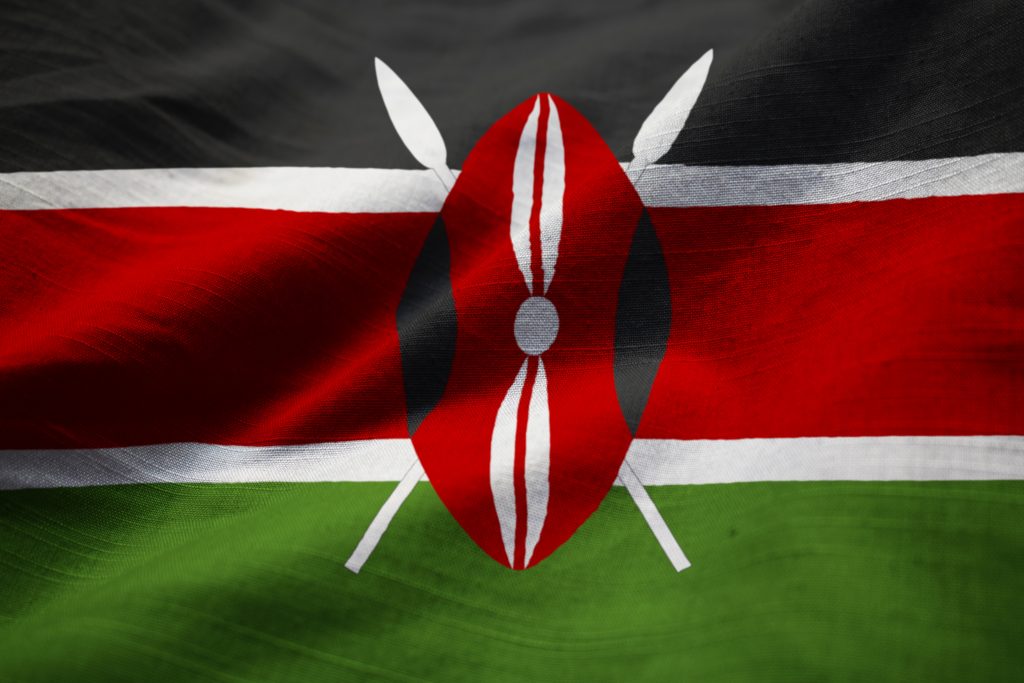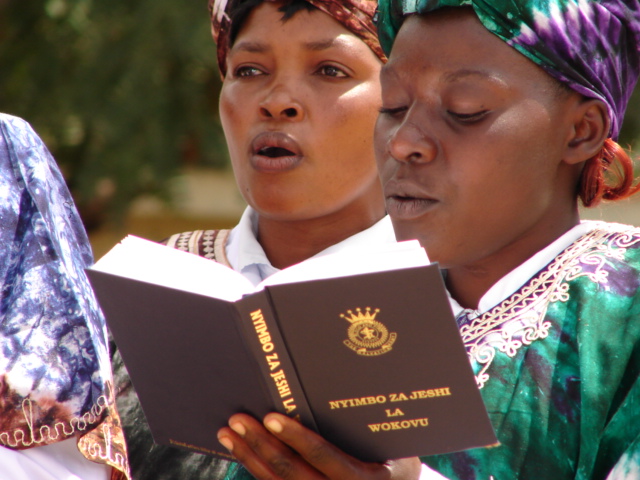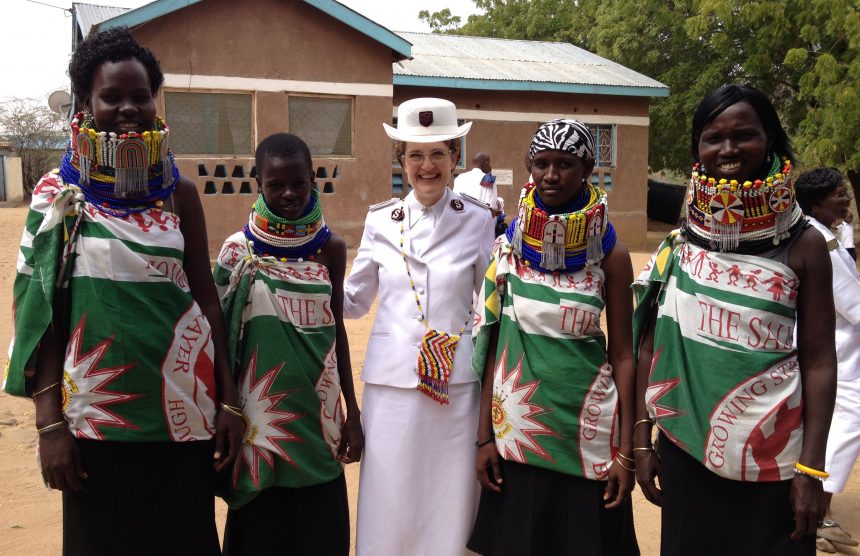Women’s Ministries Fundraising Dinner Program
Hope for the Hungry: Spotlight Kenya
You can find excellent resources at centralmissions.org. Go to their family kits for Latin America North and Kenya, Mali and Tanzania.
Theme Verse: Matthew 28:19-20 “Therefore go and make disciples of all the nations, baptizing them in the name of the Father and of the Son and of the Holy Spirit, and teaching them to obey everything I have commanded you. And surely I am with you always, to the very end of the age” (NIV).
This event could be a fundraising dinner for World Services. Use simple Kenyan recipes that can be found on the Internet. You may want to ask the women to bring an ingredient, then divide the tasks to cook the meal together. Sell tickets ahead of time, or charge for the meal.
Decorations
Use tablecloths in the colors of the Kenyan flag: red, green, black and white. Use the Kenyan flag with explanation of the meanings as a part of the centerpieces. Place toys figurines, posters, pictures of animals native to Kenya around the room. (These can include the buffalo, elephant, leopard, lion, rhinoceros, crocodile, gazelle, giraffe, monkey and zebra.)

Craft
African Bead Necklace
Create an African bead necklace (instructions at http://www.redtedart.com/easy-magazine-beads-diy) to be given as a prize during the dinner, or include this craft as an activity during the dinner event.
Games
Kenyan Trivia Game
Create 10 trivia questions about Kenya. Each questions should have three possible answers: A, B, or C. Designate three areas of the room as A, B and C. Each person will move to the area they choose as their answer. Everyone choosing the incorrect answer will go back to their seat. Or if it would be more suitable, give the women a set of colored paper strips. If they choose the incorrect answer, they lose a strip of paper. The last one left with strips is the winner.
Mancala
This game has its origins in Africa as “Bao.” Mancala is available at most stores in the United States. You could also make your own version very simply by using an egg carton and counters such as dry beans, marbles or beads. This is a two-player game, so it can be play as the group watches and have someone else come in to compete against the winner. Whoever has the longest winning streak can keep the game. You can find directions for this game on the Internet.
Swahili Phrases
Good morning Habari za asubuhi! (hah-bah-ree) (zah) (ah-soo-boo-hee)
Good day Habari za leo! (hah-bah-ree) (zah) (lay-oh)
Good afternoon Habari za mchana! (hah-bah-ree) (zahm-chah-nah)
Sleep well!/Goodnight! Lala salama! (lah-lah) (sah-lah-mah)
May I enter? Hodi, hodi? (hoh-dee) (hoh-dee)
Hello, how are you? Habari gani? (hah-bah-ree) (gah-nee)
Well, thank you! Nzuri, asante! (nn-zoo-ree) (ah-sahn-tay)
What’s up? Vipi? (vee-pee)
Hello Habari/hujambo (hah-bah-ree)/(hoo-jahm-boh)
Hello, I’m fine Sijambo (see-jahm-boh)
(response to Hujambo)
Fine Safi/Poa (sah-fee)/(poh-ah)
Thank you Asante (ah-sahn-tay)
Thank you very much Asante sana (ah-sahn-tay) (sah-nah)
You’re welcome Karibu (kah-ree-boo)
You’re very welcome Karibu sana (kah-ree-boo) (sah-nah)
My name is… Jina langu ni… (jee-nah) (lahn-goo) (nee)
African Music
You can access African music on the Internet to play during the meal.
You may wish to show a video of The Salvation Army’s work in Kenya. There are 4 segments in the “Into the World: Kenya Joy Land” series.
The Meal
One typical meal for Kenyans consists of ugali with a little bit of cooked vegetables or a saucy stew. You may wish to provide this basic meal or to offer other simple Kenyan dishes. Check the Internet or Pinterest for recipes. https://www.africanbites.com/irio/ http://migrationology.com/kenyan-food/
Glorious Food
Read Acts 10:1–22.
Most of us are familiar with the phrase “his eyes were bigger than his stomach.” We’ve been warned not to go grocery shopping when we are hungry. Why this warning? Because we are often tempted to buy food that looks and sounds good even though the items are not on our list and may not be very nutritious. There is definitely a connection between our stomach and our eyes. This connection can apply to our spiritual eyes as well as our physical eyes.
In the scripture portion from Acts 10 that was just shared, we see that when Peter was hungry God gave him a vision about food. But it wasn’t about his favorite foods or even food that he considered good for him. It was an assortment of foods that by tradition he wasn’t allowed to eat. He was puzzled and asked God what it meant. He had avoided those foods for what he thought were good, spiritual reasons. It was fine for other people to eat those foods, but certainly not him. Yet the voice in his vision answered (verse 15): “Do not call anything impure that God has made clean.” To get the point across, this answer came three times.
While Peter was still hungry and wondering what this vision meant, Cornelius’ men arrived at his door. When they explained why they were there, Peter understood the vision and went with them. He was to bring the gospel to seekers from another culture. His world was opened, and the kingdom of God was expanded that day. The Great Commission (Matthew 28:19, 20) was revealed to him as something beyond his own set of rules and customs.
Have you ever gone to someone’s home for a meal and they served something foreign to you? Maybe they served food from a culture different from yours. How did you react? I was taught as a child that if invited to a meal at someone’s home, I was to eat what was prepared and receive it happily and politely, even if it was something unusual. It was a sign of respect.
Later in life, I prepared for those situations by attending the meal hungry. I found I could eat anything if I was hungry. When I was a guest of someone from a different culture, I saw that they watched me as I ate with hopes that I would enjoy the meal. I saw that the meal was an important part of their family life, and I felt honored to be included in such an intimate show of love and unity as we passed the food around the table. Tonight we can imagine ourselves sitting around a table in a Kenyan home as we taste what they would serve each other.
We see in the Scriptures how God used unexpected methods to speak to His people. He gave a donkey a human’s voice to instruct the prophet Balaam. He set a bush on fire to speak through the flames to Moses. After causing loud noises of weather through the wind and thunder, He spoke to Elijah in a low whisper. And He used Peter’s hunger pangs to get his point across through a vision.
Has God stopped speaking to His people? Certainly not! Unlike our predecessors in the faith, we have the benefit of God’s complete Word to speak to us. However, He also still speaks through nature and our senses. He has spoken to me through the songs of birds, the smell of rain, the chill of a cold winter’s morning and unexpected visits from His animal creations. And yes, even in my hunger.
I hope you came to tonight’s meal hungry. Not only to be able to better appreciate the foreign dishes before you, but in your hunger that people in Kenya and other places who long for the love of Christ will know His love as you do.
In closing, read verse 3 and chorus of “The World for God,” The Salvation Army Song Book # 933.
Additional Resources:


